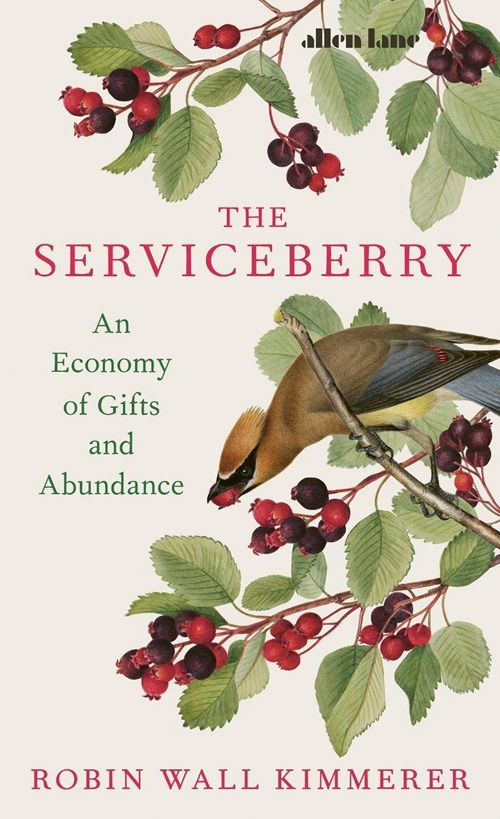The Economy of Enough
This week we take a look at The Serviceberry by Robin Wall Kimmerer - A generous, grounded invitation to rethink everything. Especially our economies.
Let me be clear right up front: this isn’t one of those preachy, finger-waggy manifestos. And it’s not an impenetrable economics tome either. The Serviceberry is 112 pages of gentle wisdom, lyrical storytelling, and quiet revolution. The kind of book that makes you want to cook a meal for your neighbours, write a letter to your MP, and start a garden—all in the same afternoon.
Robin Wall Kimmerer, who brought us Braiding Sweetgrass (shamefully one I am yet to read but it is on my 2025 TBR), brings a blend of botany, indigenous knowledge, and poetry here—but this time she’s asking a deceptively simple question: what would our world look like if we built our economy around reciprocity, not profit?
She starts with a tree—the serviceberry—and from there, grows a powerful metaphor for how we might trade, share, and live in ways that are relational, not transactional. It’s part ecology, part philosophy, part practical imagining. The tone is so gentle you barely notice how radically it’s shifting your worldview.
This book isn’t about burning it all down. It’s about re-rooting. About remembering that abundance isn’t just a fairy tale, and that generosity—real, mutual generosity—can be a system, not just a sentiment.
Who should read it:
If you work in systems change, philanthropy, community organising, or policymaking—this is required reading. If you’ve ever had a gut feeling that capitalism doesn’t quite have the full story, but you’re not sure what the alternative looks like—this is for you too.
It’s thoughtful without being dense. Radical without being alienating. And above all, hopeful. I borrowed it from the library, but this is one I’ll be buying—a book to reread, underline, highlight, and press into other people’s hands.
It feels like a seed we could all use. Something that might grow into a better way of being, if we choose to tend it … because life’s too short to read bad books.



